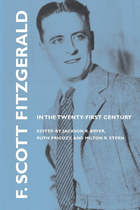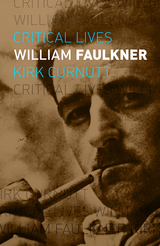
As the author of some of the most compelling short stories ever written, two of the central novels in American literature, and some of the most beautiful prose ever penned, F. Scott Fitzgerald is read and studied all over the world. Sixty-two years after his death, his works—protean, provocative, multilayered, and rich—continue to elicit spirited responses. This collection grew out of the F. Scott Fitzgerald Conference that convened in Princeton at the centennial of this author's birth. Bringing together dozens of the world's leading scholars and commentators, the conference and the book celebrate the ever-growing legacy of Fitzgerald's art.

Beginning with the 1929 publication of The Sound and the Fury (his fourth novel), Faulkner produced a dazzling series of masterpieces in rapid order, including As I Lay Dying; Sanctuary; Light in August; Absalom, Absalom!; and Go Down, Moses—novels and stories that alternately exhilarated and exasperated critics and left readers gasping to keep pace with his storytelling innovations. Transforming his hometown of Oxford, Mississippi, into the fictional Yoknapatawpha County, Faulkner created his own microcosm in which compassion and personal honor struggle to stand up to the violence, lust, and greed of the modern world.
As prolific as Faulkner was, however, the career of this Nobel laureate was neither easy nor carefree. He was perpetually strapped for cash, burdened with supporting a large extended family, ambivalent toward his marriage, and vulnerable to alcoholism. Honoring both the man and the artist, this book examines how Faulkner strained to balance these pressures and pursue his literary vision with single-minded determination.
READERS
Browse our collection.
PUBLISHERS
See BiblioVault's publisher services.
STUDENT SERVICES
Files for college accessibility offices.
UChicago Accessibility Resources
home | accessibility | search | about | contact us
BiblioVault ® 2001 - 2024
The University of Chicago Press









